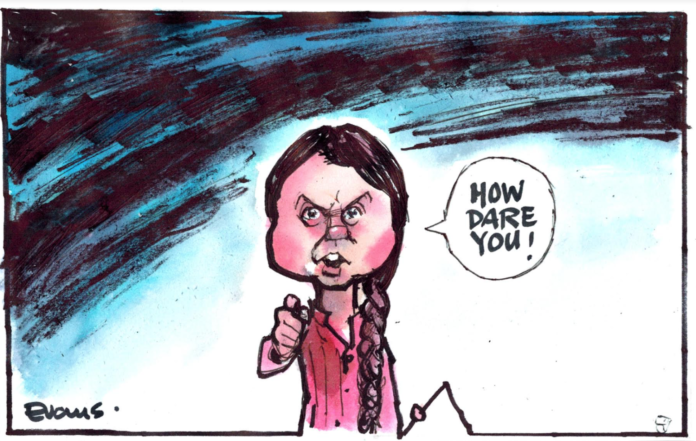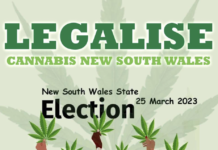After last Friday’s deluge, Auckland was awash—streets were rivers, gullies were lakes, cars were flotsam, houses were colanders as banks subsided and highways collapsed.
Last Saturday morning, Kim Hill interviewed Wayne Brown and asked: “Is there any doubt in your mind that this is an example of climate change?” He replied as follows:
It’s a bit early to jump to that, let’s just fix things that we’ve got now. I’m worried about the people here, safety first, then I’m worried about the instant restoring of the infrastructure, then we’ll be worrying about the impact on the people who have lost property. And ah well work our way through that. But it’s a bit early for that”.
The Auckland mayor, no denialist, defers the climate change issue because of civil emergency requirements. Yet, the two are integrally related. Carbon emissions and global temperature rise will make deluges far more likely. Extreme weather events are becoming the new normal. How, then, should we cope? On Karen Hay’s RNZ Monday night show (31 January), guest psychologist Sara Chatwin’s advice was sensible but superficial: stay resilient, confide in family members and friends, don’t fear asking for help, be active. When queried on climate change, Chatwin’s reply included the following gem:
Look, I think everybody’s um looking towards the bigger picture. I think you know we start in our microcosm dealing with this, the immediate implications of what’s happened and then people’s minds do travel to, you know, um the bigger issues, the macro picture and, and we think we have to do a whole lot of thinking around that. Although there have been amazing, um, climactic changes, you know, over the lifespan. And there will be, I suggest, for, you know, ever. And I guess for now though, we do have to pay more attention as we’re making small tweaks in this kind of a situation. Well then, we are going to have to keep tweaking our lives aren’t we? – to take on board the implications of climate change. I guess for now though we need to focus on, as I said before, what we can control. And at the moment for a lot of Aucklanders that larger picture isn’t anything they can control.
Sara Chatwin is no denialist either, climate change is seen to be a macro problem. Later in the interview, she acknowledged that this should have been understood earlier. However, her primary response is, again, deferral. Deal with tangible matters now, the macro comes latter.
Brown and Chatwin overlook two basic realities:
- Climate change as such constitutes a worldwide emergency.
- Culpability for carbon emissions, climate change and ecological collapse rests upon major corporations and wealthy elites.
Let’s start with the planetary repercussions of carbon emissions. In 2015, earth scientists, Clive Hamilton, Christopher Bonneuil and Francis Gemenne pointed out that 375 billion tons of carbon had been emitted by human activities since 1870. Eventually, this meant inhabiting an impoverished and artificial biosphere and a hotter world increasingly characterized by catastrophic events and the prospect of no polar ice caps. Increasingly, the world will experience rising and more acidic seas, an unruly climate and a multitude of unequal sufferings. Ever-rising global surface temperatures will accelerate biospheric degradation, deforestation and the decline in fish stocks.
Crucially, though, generic humanity is not to blame and never has been. From the early 1800s, as ecology researcher and climate change activist Andreas Malm explains, capitalists in a small corner of the western world invested in steam. They were responsible for the first major carbon emissions spike. Similarly, later industrial capitalists invested in oil extraction, refining and combustion. Carbon-intensive economic growth worldwide was the net result.
From about 1990, with the arrival of fully fledged global capitalism, carbon emissions reached a new threshold. Malm’s analysis in Fossil Capital (2016) reveals that between 1751 and 2010, half of all CO2 emissions from fossil fuel combustion occurred after 1986. Global corporate producers are primarily responsible for this. Richard Heede of the Climate Accountability Institute has tracked total emissions for industrial carbon dioxide and methane from. Between 1751 and 2010, sixty-three percent derived from the world’s largest 83 producers of coal, oil and natural gas plus the seven largest cement manufacturers.
More recently, a very small number of culpable agents has fuelled the new spike. From 1965 to 2017, the top 20 corporates together emitted 480 billion tons of carbon dioxide and methane—35 percent of all such emissions worldwide. Of emissions attributed to the top 20 carbon producers, seven-eighths were from the use of their products—petrol, jet fuel, natural gas and coal. One eighth came from extracting, refining and delivering finished fuels. Of investor-owned fossil fuel corporations—Chevron, BP, Exxon and Shell—were behind more than 10 percent of world carbon emissions during the 1965-2017 period.
The corporate ambit of emission culpability also includes transnational finance capital. In October 2019, journalist Patrick Greenfield drew from the think tank Influence Map and business data specialists Proxy Insight to examine the investment holdings of Blackrock, Vanguard and State Street. Their combined portfolios presided over US$286.7 billion of oil, coal and gas company shares, administered through 1,712 funds. Such investments were, and are, used to manage major funds involving pensions, university endowments and insurance companies. These findings reiterate the general principle of corporate culpability for carbon emissions and point to the contributions of global finance. Further to this matter, Bank of England Governor Mark Carney in 2019 surmised that multi-trillion-dollar world capital markets were financing projects and activities likely to raise average global temperatures by 4 percent more than pre-industrial levels.
As global networks of fossil fuel extraction, refining, industrial use and related financial investment produce carbon emissions, wealthy elites dominate carbon consumption. With huge money surpluses to spend on precious metals, property portfolios, home residences, retreats, first-class travel, cars, yachts, jets, exclusive cultural pursuits and leisure activities, the rich and super-rich demarcate social prestige among themselves. Individuals, families and groups strive to symbolically out-consume their class peers, while the upper-middle classes aspire to emulate their superiors. The entire setup, led by dominant owners of capital, is ecologically unsustainable. Thus, economy-class plane trips compared to first-class passages account for much less carbon dioxide per person. The luxury automobile encourages a larger individual carbon footprint than does the standard vehicle, bus and train. As reported by Oxfam in 2015, the richest 10 percent of people produced half of the planet’s individual consumption-based fossil fuel emissions, while the poorest 50 percent contributed only 10 percent. The top 1 percent emitted 30 times more carbon dioxide than the poorest 50 per cent and 175 times that of the poorest 10 percent.
The 2022 World Inequality Report broadly confirms these trends and further notes that the richest 1 percent of individuals in 2019 emitted 100 tons of carbon dioxide on average per person per annum. More dramatically, the top 0.1 percent emitted 467 tons, and the top .01 percent 2,550 tons. These calculations demonstrate that very large degrees of carbon emission correlate with very high degrees of capitalist class wealth.
The general picture is clear. Fossil fuel capitalists and the wealthiest global elites are indirectly yet centrally responsible for global warming and extreme weather events. There is not the space here to outline an appropriate international response. However, I have some recommendations for our new prime minister leading into this year’s budget and general election.
- Advance the principle of a progressive income tax system whereby the highest income earners pay more.
- Designate some of these tax increases for climate emergencies and socio-economic recovery.
- Announce an immediate moratorium on all kinds of carbon prospecting and extraction.
- Foreground the climate crisis itself and identify its major drivers.
The latter recommendation may be too much to hope for, but planetary circumstances won’t improve until the diagnosis suggested here is recognised and acted upon.





Noah was last seen in south Auckland scouting for a big enough park to start a flood relief build your own Ark-House. All he needs is some wood and nails as well as some chippies. So keep your eyes peeled over the next few days around Auckland for a few local parks with activity happening at them.
Noahs Housing the Homeless Ark project.
No doubt a massive marketing give-a-little campaign raising millions for Noa Kainga Kore Kurae that the government matches, that somehow never actually creates the ark or houses the homeless….. but knighthood and accolades follow for those in the media spotlight raising and in charge of the money.
Full frontal support that mysteriously drops off as questions start being asked years later when the ark gets canned or still in the advisory stage with millions spent on consultants.
I’m afraid Auckland council has refused to give Noah a building permit/consent for his ‘Arks’ as they dont meet todays building standards! The irony.
I think I get it.
1. Tax the rich so heavily that their idea of a holiday becomes a weekend in Waikanae visiting mum, like the rest of us.
2. Give the money to poor people so that they can afford the petrol to drive to Tawa to visit their mum. Use the rest to fix potholes.
3. Done that already but don’t actually stop using all kinds of carbon, just import other peoples carbon.
4. Set up a working group to find out for sure that cows produce methane and people use petrol on trips to see their mum.
rinse and repeat
Using the Greta Cartoon is not a good idea due to two things
1. Greta vs Rebel Media in Davos — Greta came across very badly
2. Doco titled ‘Greta Inc.’ — exposed Greta as a puppet
A puppet for climate change awareness, or some other equally evil master?
Sinic – Great question…Greta Inc doco makers tried to find this out, and Greta hired thugs “security” assaulted them physically, and due to Sweden privacy laws, and Greta’s family refusing to come clean on who is bankrolling her…
and Nathan… what can i say… You are now and forever, dumber than a wet paper bag full of bricks.
Most of the proposed solutions to our carbon emitting economies overlook the fact that our standard of living and quality of life is based on consumption – lots and lots of it.
People like consumption – the new shiny things it brings them, the employment it provides and the returns on capital investment it delivers. We (in advanced economies) live in an abundance of free choice and ever improving quality and availability of stuff – this is the great gift of our modern economic systems.
While it’s easy and obvious to blame fossil fuel companies they are simply doing what we ask of them – producing the vast amounts of energy we demand for the production and distribution of all the stuff we buy.
The idea that green tech or alternative energy sources can deliver a solution ignores the massive extraction and production costs and further environmental damage this will cause.
Serious solutions would need to re-focus our economies to make hard choices – do you want private car ownership or public hospitals? Do you want cheap electronic goods or food security?
Do you want high returns on capital investment or stable long term businesses delivering critical products and services?
Of course, no one will elect a government proposing these choices and this brings us to those who are actually responsible for climate change – voters in advanced economies.
+ 1.
It is, however, so much more comforting to find the blame sits with a small group of corporates and their executives.
We’d all get to say: “not our fault, it was them over there…they did it.”
Hard limits on carbon emitting activities, e.g. ban private jets and cap carbon emissions per passenger per distance for flights – essentially legislating economy class only.
We could “send cost incentives” but the ultra rich don’t care about that. We need to make it illegal for them to do what they do.
We could also go the social credit route: measure the emissions from individuals consumption and travel, with fines or even jail for those who breach their personal emissions caps.
Either way one thing we should do is not build houses on flood zones, and proper drainage for urban areas.
Can’t disagree with a word you say Peter. However because our fucked up world is changing so fast, we are assured by clever advertising that we need all this shit. And we are so frightened of missing out on something our neighbour or friend has that we have become slaves to the pedlars of this shit. They have worked out with the help of psychologists, that if you advertise the right way a certain percentage of dumb fucks will believe they need this junk. How we can re program ourselves back to thinking logically about our survival I have no idea. Yes I have been guilty of the above, but at least I can recognise that. Many are oblivious that they are totally dependent on consumer crap. These people will be first to perish if our world becomes a more difficult place to live. Switching off the news will delay the issue.
Well said Peter. People are happy to ban things so long as somebody else pays the price. They drive to the airport, jet off to the Bahamas and tick a little box called a carbon offset. Meanwhile, back here in Wairoa, more farmland is planted in pine trees, more jobs are lost and more logs wash up on East Coast beaches. But’s that’s all OK because it’s happening somewhere else and they can keep on consuming Caribbean holidays with a clean conscience.
AT capitalist response to flooding – giving out tickets while the official advice is to stay at home.
‘Heartless’: Auckland Transport wardens ticket cars in flood-stricken Browns Bay
https://www.stuff.co.nz/national/traffic-updates/300795866/heartless-auckland-transport-wardens-ticket-cars-in-floodstricken-browns-bay
Those responsible for human induced climate change are humans, not corporations
Oh my God! @ andy? Are you really that stupid? Do you drive? Do you breed? Are you joking? If you are, then you should say so. If you’re serious you should have a vasectomy then chain yourself to your bath tub.
Corporations are people too…
https://www.amazon.com/Corporations-Are-People-Too-Should/dp/0300211473
Pronouns?
https://uwm.edu/lgbtrc/support/gender-pronouns/
and I produce how much carbon….and fossil fuel corporations are responsable for how many emissions andy?
yes are all guilty but some are more guilty than others.
‘Behind the floods: shitty stormwater drainage future proofing’
Fixed it for you.
requires taxation and a govt repair/maintainance dept, kinda like a dept of works…private contractors are clearly not up to the job…that ok with you capt?
You are missing the point about the 20 largest corporate emitters. They emit because they supply the things we want. Cars, fuel, paper and a myriad of manufactured goods. None of the 20 corporates would be relevant except for the fact we are all part of the developed world and therefore consume accordingly. The ultra rich are certainly conspicuous consumers, but they make very little difference in aggregate emissions.
For an indication of change, just 20 years ago I shifted into Bayswater. Most families had two cars mostly housed in their own garages. Now the street is chock a bloc with cars. Every single adult (anyone over 18) has their own car. It is not as if public transport has got worse in the last 20 years, in fact it is substantially better. Nevertheless, with much cheaper second hand cars, everyone has got one. And they use them.
The two thousand extra cars in Bayswater make a much bigger contribution to emissions than the half dozen private jets in New Zealand. The only saving grace is that cars built in the last 20 years are much more efficient than cars of the 1980’s and 1990’s. Virtually all those cars have been scrapped. That is why, despite the huge increase in vehicle numbers, transport emissions have barely increased.
So there is no point about making a bogey of the 20 emitters, it is ultimately about us and our choices. Think for instance about fuel prices. There was huge demand for a reduction in the govt tax on fuel, and the government reduced it. Not unsuprisingly they are reluctant to increase it again. Who is to blame?
Is it us as consumers, or is it the fuel companies?
right to repair, would ease consumption to some extent
What you saying that us giving up our Gas hobs aren’t actually making a difference?
But that we for the last 3 + decades sang many songs about global warming, weather weirding and climate change but never even started to build any new structures with climate change in mind? that our infrastructure crumbles just like that? That our houses are so shit that even new ones float away? That we don’t have an dedicated emergency response to events such as that? and above all that we depend on volunteers to come safe us, all the time while the spouses of those volunteers fight to survive themselves?
Are you saying that at the very least since Helen Clark many big mouthy words were spoken but no actions followed?
Oh my. Who would have thought.
In short, we’re fucked.
bingo.
and it is up to the people to unfuck themselves as government i to bloated, to over educated , to visionless and without any real life skills to actually be of help.
At least you don’t try to appear TOO over-educated..
“Announce an immediate moratorium on all kinds of carbon prospecting and extraction.”
An atrocious idea. Electrification of the economy requires an exponential increase in mining output, which requires huge amounts of (cheap) energy.
The State Mines, Synthetic Fuels Corporation, and State Refineries should be reopened, and production of CTL/GTL synthetic gasoline must resume immediately. All mining and drilling must be allowed to proceed.
Once this occurs, then sufficient production of batteries, solar panels and electric machinery becomes possible. This should be produced locally.
Are you saying we should have big factories producing usefully stuff? Are you saying we should become more productive as a nation and more profitable as a country? NOT IN MY BACKYARD!!!!!!!!!!!!
Ha! Reminds me of that disgraceful episode with poor Trevor Mallard, where his plan for a brand new Auckland stadium got canned — because a few apartment owners went on television, and complained that their view would be “ruined”!
But the planet is burning…..
If the ruling classes were at all concerned about reducing emissions, they at once cease the practice of immigration from the Third World. Such immigrants increase their emissions by 400% once into First World countries.
https://cis.org/Report/Immigration-United-States-and-WorldWide-Greenhouse-Gas-Emissions
Quote: “The findings of this study indicate that future levels of immigration will have a significant impact on efforts to reduce global CO2 emissions. Immigration to the United States significantly increases world-wide CO2 emissions because it transfers population from lower-polluting parts of the world to the United States, which is a higher-polluting country. On average immigrants increase their emissions four-fold by coming to America.”
This is something that could be tackled tomorrow, and it would result in significant reductions in emissions. Think of the increase emissions from the 200,000 illegal immigrants coming across the US southern border every month, so say nothing of the legal numbers. However, the fact is that, despite the data and how it conflicts with pronouncements on the “climate emergency,” immigration will never be reduced or stopped. If we are concerned about emissions and if we are empiricists, then it should be the first thing on the agenda. But ideology will not allow it.
Hey Wayne, can you ask MB to stop using that cartoon of Great…it’s worn out now…
Greta…
Wow the Kraut is in full cancel mode.
National are Squeaky Clean – good point
Sorry Squeaky I can’t respond to you as you have been cancelled.
Am I pleased to hear that.
Are you Bobblehead? Are you sure? Full sentences remember? “I am pleased…” or “I am confused whether I am pleased…” Keep working on it 🙂
Sinic you are a funny person.
“Brevity is the soul of wit”
the right are masters of ‘cancel culture’ like all dickheads they project their sins onto others.
Judging by the accompanying statements in this article, probably for ideological reasons the author points to “corporations” and the “wealthy elite” as the responsible parties, yet doesn’t seem to realise the obvious point that, if it weren’t for individual consumers consuming the output of corporations, then corporations would not emit anything. Sure, corporations spend billions on advertising to convince people that they need their products, but it still falls to the consumer whether they buy or not. So the real problem is reducible to the consumption by individuals – stop consuming, and corporations will necessarily stop producing. But the thought of reducing one’s consumption of one’s own volition terrifies most people, so they’ rather blame corporations than themselves. “Something must be done” is a more attractive proposition than “I must do something myself.”
Well, I would say that it is in fact the Marketing industry that must bear the main burden of guilt. Without all those bloody manipulative advertising bastards, innocent ordinary people like us might not have ended up consuming shitloads of stuff we didn’t really need anyway.
Supply and demand?
Ordinary people In Vino,can you define that for me please?
Power+man – Except if the messenger is overdue for some criticism so we can fact check what is being said by the messenger.
Comments are closed.